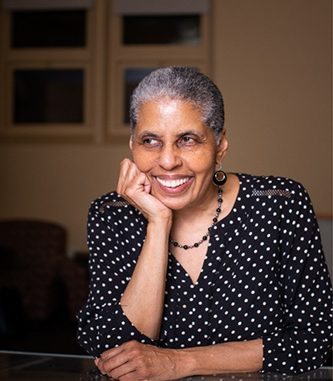
By Radwan Farraj
Author and activist Barbara Smith was recently announced as the Wolfe Institute’s Robert L. Hess Scholar-in-Residence for the academic year of 2022-23. The Scholar-in-Residence program features an annually rotating list of scholars from different disciplines and invites them to participate in public lectures, panels, and engage with BC faculty, staff, and students.
Smith was one of the founding members of the Combahee River Collective, a Black feminist lesbian socialist organization formed in 1974 that aimed to shape Black feminism into an agent of social change and reform through political involvement and the fostering of political consciousness.
“When I started looking at African American literature, and particularly Black women writers, very few people in the nation were doing that, nor did they have any interest in doing it,” Smith told the Vanguard.
With the purpose of addressing particular issues that faced Black women’s studies, Smith wrote one essay in 1977 titled, “Toward a Black Feminist Criticism,” where she attempted to “define the field of Black women’s literature, which had not really been done in any kind of cohesive way before.” Although other scholars were interested in this field of study, Smith explains that it would only have been a handful across the nation, as “they were not necessarily trying to define what might that field be.”
In 1977, the Combahee River Collective would publish its widely influential “Combahee River Collective Statement,” which would have far-reaching consequences for the development of Black feminism and for Black women’s studies.
“It’s considered to be probably the clearest statement of what Black feminism is as a political stance and perspective. And also, it had the seeds of what is now called intersectionality,” said Smith when discussing the importance of outlining the Collective’s goals. “We were talking about how you have to look at race and gender, class and sexuality when you’re forming a political program and political priorities; you can’t just look at one vector.”
The Collective’s work has influenced present-day activist organizations like Black Lives Matter and the perspectives of its leaders who have been shaped by the Combahee River Collective’s goals and influence in developing Black feminism.
“We made the point that we were not solely women. We were not solely Black, that we were both Black and women, and that we could not be divided from each other,” stated Smith.
With her new title as Hess Scholar-in-Residence, Smith expressed her enthusiasm to engage with BC faculty and staff, in particular students, and discuss the change in college curriculums since her time as a college student. Referencing her joy in engaging with students, Smith said, “I believe that’s why people choose, should choose to be in classrooms because they want to be. They wanna be around, you know, people who are young, alert, energetic, idealist, and curious.”
Smith will be attending events hosted by the Wolfe Institute through March. The events cover a range of topics from discussions about elections to intersectionality and reproductive justice.
